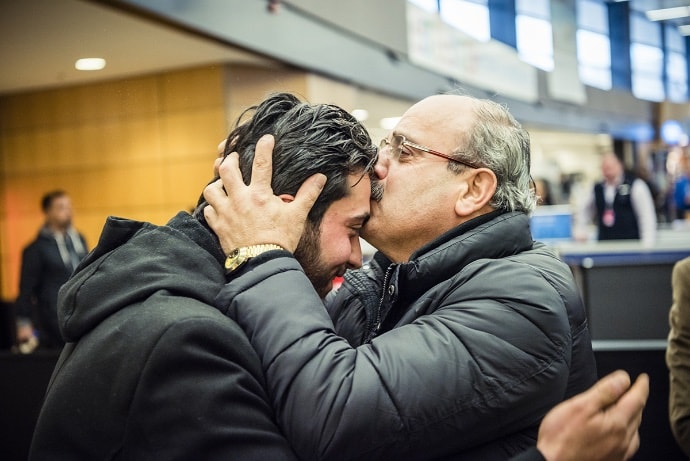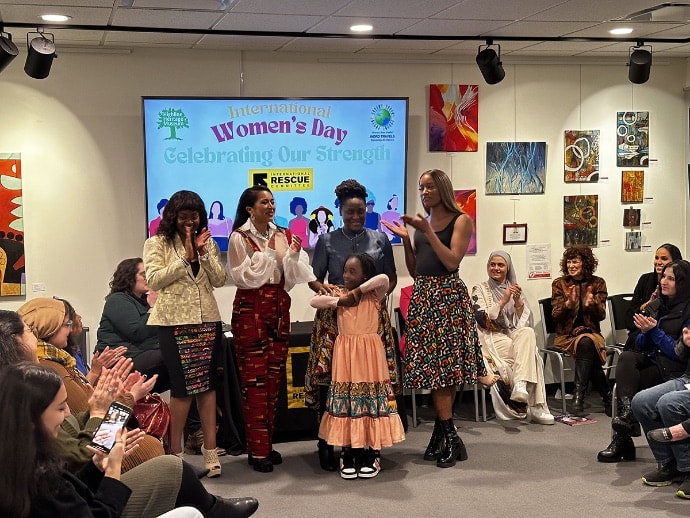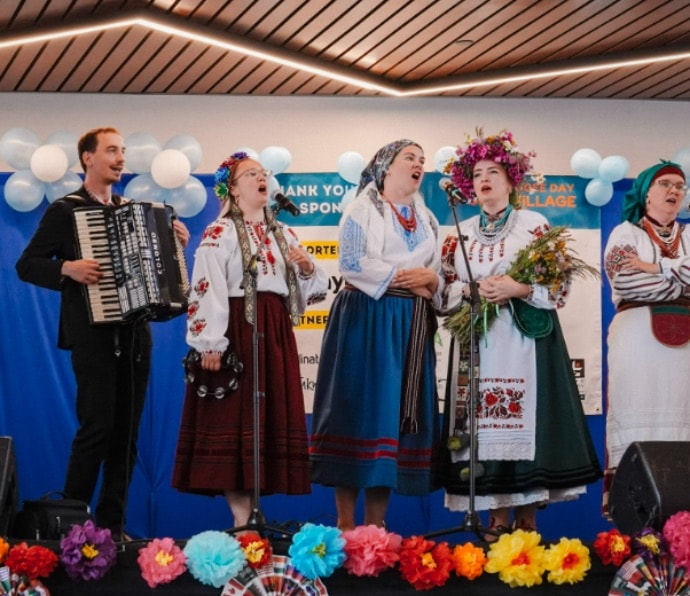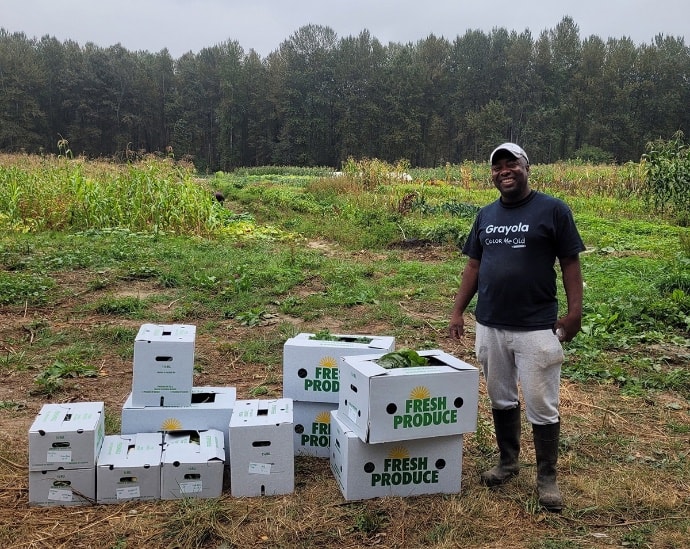By Gul Siddiqi, Development Manager, International Rescue Committee WA

Ahmed, center, reunites with his son Walid at Sea-Tac International Airport. Emtisal and Ahmed from Syria were reunited with their two older children and son-in-law in February 2017. The children were barred from entering after Trump had issued an executive order banning Syrians indefinitely. A Seattle judge lifted the ban, allowing Walid to reunite with his parents and other siblings in Washington. Photo: IRC
Globally, humanitarian and resettlement needs are higher than ever before. 120 million people are forcibly displaced worldwide, a number that has more than doubled over the past ten years and increased by 10 million since last year. For far too many families and individuals seeking safety and refuge, they are greeted not by welcome but by cruelty and inhumanity.
Too many governments and politicians are under the misguided notion that this cruelty and inhumanity are their best options for establishing order at their borders. But that belief is not backed up by facts, and often the most cruel solutions produce more disorder and increase human-trafficking.
The IRC’s experience working across 50 countries around the world and helping people find refuge for nearly 100 years has taught us that there is a better path to a humane, orderly, predictable, and fair system for refugees and asylum seekers.

Olayinka Ola, center, leads a fashion show for IRC WA’s International Women’s Day event: Celebrating Our Strength. A client of IRC Washington’s Small Business Program, Yinka founded Ayo Collections clothing line and has shown at New York Fashion Week. “From traditional Lala dresses to contemporary Banjul shirts, each piece (at Ayo Collections) celebrates the rich heritage and culture of the (African) continent.” Photo: IRC
To this end, IRC in Seattle is actively recruiting for Community Support Groups to work side by side with the IRC as we welcome new arrivals and work with them as they integrate into our communities: https://www.rescue.org/announcement/join-community-support-groups
Community Support Groups act as a welcoming network for newly arrived refugees through a four-month commitment and a clearly defined financial contribution to help with housing expenses, move-in fees, utility and rental assistance, and in-kind donations. These community groups can take many forms, including local clubs, university communities, faith-based institutions, community groups, sports teams, book clubs, and many more. These groups play a crucial role in local refugee resettlement efforts.
Responsibilities will encompass a range of vital tasks that directly impact the well-being of the sponsored family. Working alongside the IRC Washington office, your efforts will be instrumental in helping the family establish themselves in their new community and navigate the challenges of their resettlement journey.

At IRC’s World Refugee Day 2024, Global Village, a local Ukrainian band performs culturally significant songs and dances. Each year, IRC partners with King County Library System and other partners in June to celebrate World Refugee Day with dances, food, resources for the community, activities for children, local artisans, and much more. The event shows off the beauty and strength of our communities’ refugee and immigrant neighbors. Photo: IRC
The IRC welcomes the Biden Administration’s commitment to maintaining the refugee admissions target at 125,000 for FY24 and working to reach that goal by expanding opportunities for local communities to support refugees through sponsorships like this and establishing innovative pathways that will allow more refugees to resettle in our communities and contribute to our local economies.
While the Biden administration has invested in expanding pathways to protection for displaced people, they have also recently imposed severe restrictions on the legal right to seek asylum. Those that try and seek asylum at the U.S. border without an appointment—made through CBP One, a government smartphone app—may be stripped of their right to present their claim, quickly removed, and prohibited from seeking asylum for five years.
Additionally, under the administration’s June 2024 executive actions suspending asylum at the border, the standard for fear screenings was heightened, risking the return of people to situations of persecution or other danger.
Every individual fleeing persecution deserves a fair and timely opportunity to present their claim for protection inside of the United States, regardless of whether they have access to high-speed internet to secure an appointment or know how to navigate a glitchy government app. These policies are not legal and only put those seeking safety into further danger while creating opportunities for smugglers, destabilizing communities, and deepening crises.

Assumani, a farmer with IRC’s New Roots program, finishes up produce boxes to take to the Tukwila Village Farmers Market. Salaam Family Farm, established in 2019, practices organic farming, and is one of the 232 clients (representing 9 countries) served by the program. New Roots offers land, technical assistance, business coaching, and more to adults, youth, and seniors who want to farm for business or mental health. Photo: IRC
Instead of bans and asylum suspensions, the U.S. must continue to build and bolster a humane and orderly system for offering protection to those that have fled persecution.
The IRC also urges the administration to continue to expand complementary pathways to protection, ensuring more refugees in need of resettlement have an opportunity to rebuild their lives in safety—and that businesses, churches, and other community groups have more of an opportunity to help.